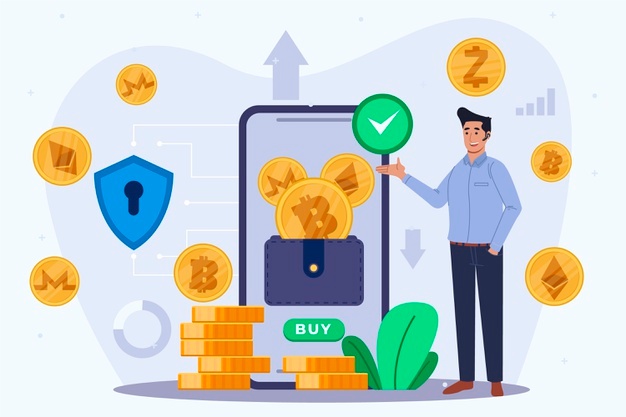Cryptocurrencies, the disruptive force revolutionizing the financial landscape – have proven to be a game-changer with their potential for lower fees and faster transactions, challenging the traditional financial systems. These digital assets enable individuals to bypass intermediaries, thereby reducing transaction costs and enhancing efficiency. We embark on a fascinating journey to explore the intricate ways in which cryptocurrencies can be leveraged to optimize crypto interest accounts and streamline transfers.
Peer-to-Peer (P2P) Transfers
The ability to conduct peer-to-peer (P2P) transfers without intermediaries is a big plus when it comes to cryptocurrencies. With no banks or payment processors involved, users can dodge transaction fees and save some serious cash. Cryptocurrencies empower individuals to engage in direct transactions – sans the involvement of banks or payment processors. By eliminating these costly third-party services, users can revel in substantial savings on transaction fees.
To use cryptocurrency for P2P transfers, both parties need digital wallets that support the specific cryptocurrency in play. Once these wallets are sorted, transactions can be kickstarted by exchanging wallet addresses. P2P transfers offer convenience, security, and financial savings. It’s no wonder they’re becoming a popular alternative to traditional payment methods.
Cross-Border Transactions
When it comes to cross-border transactions, cryptocurrencies bring significant cost savings. Traditional methods like wire transfers and international remittances come with their own set of drawbacks – long processing times, high fees, and exchange rate markups. Fortunately, cryptocurrencies offer a solution by bypassing these obstacles.
To make cross-border transactions using cryptocurrencies, it’s important to ensure that both parties have compatible wallets. Additionally, agreeing on the specific cryptocurrency and exchange rate is crucial. If needed, convert the desired amount to the recipient’s local currency. The decentralized nature and global accessibility of cryptocurrencies make these transactions more efficient and affordable.
Stablecoins
Stablecoins, such as Tether (USDT), belong to a special category of cryptocurrencies. They are designed with a unique aim: to preserve a stable value by linking it to a traditional currency like the US dollar. What’s attractive about stablecoins is that they combine the benefits of blockchain technology with the stability of regular fiat currencies. This can be quite advantageous for users, as it helps them to buy usdt cheaper while avoiding excessive fees and risks associated with high volatility.
With the use of stablecoins in transactions, users can effectively sidestep the price fluctuations commonly witnessed in other cryptocurrencies such as Bitcoin or Ethereum. Stablecoins act as a dependable medium of exchange. This is particularly useful during volatile times in the market, guaranteeing that transaction values remain relatively consistent.
Decentralized finance
To save on fees and transfers, consider exploring the world of decentralized finance (DeFi) platforms and decentralized exchanges (DEXs). These innovative platforms offer a range of financial services such as lending, borrowing, and earning interest on cryptocurrencies. By utilizing these platforms, users have the potential to earn higher returns than they would with traditional banking systems.
By utilizing DEXs, users can engage in peer-to-peer trading without the need for intermediaries, allowing for direct cryptocurrency swaps. Not only do these exchanges often have lower fees compared to centralized ones, but they also grant users greater control over their funds. However, it’s important to approach DeFi platforms and DEXs with caution since they operate through smart contracts and carry their own set of risks. Prior research and careful consideration are crucial.
Compare Exchange Fees
To ensure cost-effective and transparent transactions, compare fees across different cryptocurrency platforms. Exchanges differ in terms of their trading fees, deposit and withdrawal fees, as well as currency conversion fees. Therefore, it is important to thoroughly research and select exchanges that provide competitive rates and openly disclose their fee structures. Be cautious of any hidden charges and carefully evaluate whether the savings in fees outweigh any supplementary costs associated with using a particular exchange.
Final Thoughts
In the world of finance, cryptocurrencies emerge as fantastic alternatives that offer individuals numerous perks in terms of cost savings and convenient transfers. Through the utilization of peer-to-peer transfers, engaging in cross-border transactions, adopting stablecoins, venturing into DeFi platforms and DEXs, and conducting thorough comparisons of exchange fees, cryptocurrency users can truly maximize their savings while enjoying the endless benefits brought forth by this innovative technology.

